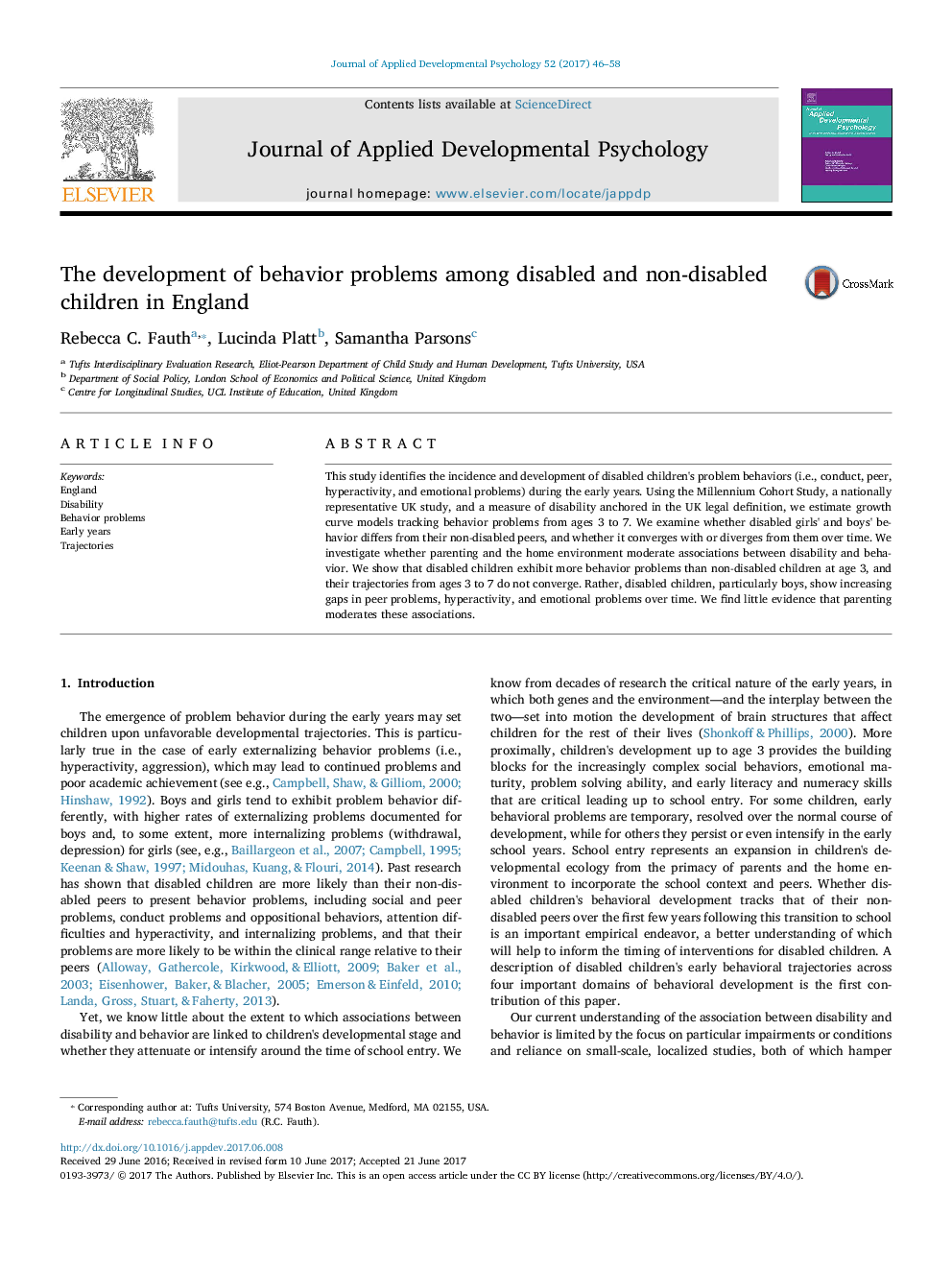ترجمه فارسی عنوان مقاله
توسعه مشکلات رفتاری در کودکان معلول و غیر معلول در انگلستان
عنوان انگلیسی
The development of behavior problems among disabled and non-disabled children in England
| کد مقاله | سال انتشار | تعداد صفحات مقاله انگلیسی |
|---|---|---|
| 160749 | 2017 | 13 صفحه PDF |
منبع

Publisher : Elsevier - Science Direct (الزویر - ساینس دایرکت)
Journal : Journal of Applied Developmental Psychology, Volume 52, September 2017, Pages 46-58
ترجمه کلمات کلیدی
انگلستان، معلولیت، مشکلات رفتاری، سال های اول، مسیرها،
کلمات کلیدی انگلیسی
England; Disability; Behavior problems; Early years; Trajectories;
ترجمه چکیده
این تحقیق در سالهای اولیه بروز و توسعه رفتارهای مشکل کودکان کودکان (یعنی رفتار، همسالان، بیش فعالی و مشکلات عاطفی) را مشخص می کند. با استفاده از مطالعات کوهورت هزاره، مطالعه انگلستان در سطح ملی و اندازه گیری ناتوانی که بر اساس تعریف قانونی انگلیس قرار دارد، ما مدل های منحنی رشد را از سنین 3 تا 7 ردیابی می کنیم. ما بررسی می کنیم که آیا رفتارهای دختران و پسران معلول از همسالان غیر معلول خود، و این که آیا آنها در طول زمان با آنها همگرا یا ناپدید می شوند. ما تحقیق می کنیم که آیا والدین و محیط خانه محور ارتباطات بین ناتوانی و رفتار است. ما نشان می دهیم که بچه های معلول کودکان مسن تر از کودکان غیر معلول 3 ساله را نشان می دهند و مسیرهای آنها از سنین 3 تا 7 همگرا نیستند. در عوض، کودکان معلول، به ویژه پسران، شکاف های فزاینده ای را در مشکلات همسالان، بیش فعالی و مشکلات عاطفی در طول زمان نشان می دهند. شواهد کمی وجود دارد که والدین این انجمن ها را تعدیل می کند.

